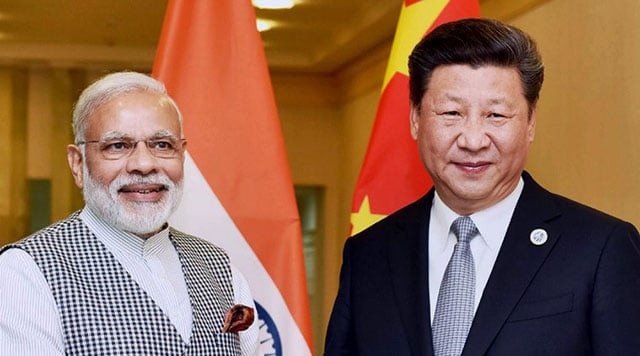The new global game
China’s sustained economic growth has increased its economic, political and strategic profile in Asia

PHOTO: PTI
To be sure, this new game is qualitatively too dissimilar to the one that was played during the Cold War days between two teams, one led by the US and the other by the USSR. Geopolitics was the name of this Cold War game and it was being played on ideological grounds. It was clearly a game of attrition. And by the time it ended one side was totally obliterated.
As opposed to this, the new game called geo-economics is being driven by global trading trends. Trade wars would be the order of the day and tussle for capturing markets would see new product innovations for quality and economy which in turn more likely than not would accelerate global growth hopefully with equity and inclusiveness.
Prefacing his study of Western diplomacy with a reflection on the ‘New world Order’, Henry Kissinger (Diplomacy, 1994), had hypothesised that: On the level of the relations among states, the new order will be more like the European State system of the 18th and 19th centuries than the rigid patterns of the cold war. It will contain at least six major powers—the US, Europe, China, Japan, Russia and probably India, as well as a multiplicity of medium-sized and smaller countries. Neither the US nor China would like to hurt their respective global business prospects. Indeed, China has in the past year delinked its growing business relationship with India from persisting differences on the political and diplomatic front.
China’s sustained economic growth of the past quarter century has increased its economic, political and strategic profile in Asia and in many other parts of the world. Therefore, it is in India’s own national security interest to avoid any non-economic tussle with China and instead improve its trade with such a vast market as well as with the global economy. And already India is a very important member of the Asian Infrastructure Investment Bank and the BRICS New Development Bank.
And many in the US believe that the best course for Washington would be one of selective buy-in: it should participate in the One Belt, One Road projects that advance its interests, such as infrastructure investments aimed at improving intraregional trade in South Asia, while avoiding or resisting those that undermine them. For its part, they insist, Beijing should prioritise projects that benefit both China and the US, and it should put vanity projects on the back burner.
Already China and the US both appreciate the looming environmental catastrophe, and are working together to head it off. Ocean conservation was first put on the foreign policy agenda at the 2014 Our Oceans Summit, convened at the behest of the US. The substantive elements of bilateral cooperation were launched at the 2015 Strategic and Economic Dialogue, which for the first time included a high-level special session on conserving and protecting the oceans.
China and the US subsequently agreed to several important maritime initiatives. These included the expansion of an existing effort by the US and Chinese Coast Guards to combat illegal fishing; an agreement to work together within the Regional Fisheries Management Organisations responsible for setting catch limits in different parts of the ocean; the creation of a partnership to reduce the flow of waste into the ocean; and joint research on ocean acidification in the Southern Ocean.
Thomas C Schelling, winner of the Nobel Prize for economics in 2005, in his seminal work on strategy of conflict and the ‘nuclear game’ took economics beyond the more mundane pre-occupation with the economics of war and national security that grabbed the attention of many Western economists during and after the Second World War. Professional economists continue to be hired both by the US Defence and State Departments and by the British and Commonwealth Office. In China, it was at a defence establishment think tank that Chinese strategists developed the notion of Comprehensive National Power, which gave a higher weight to economic and social aspects of national security over the purely military.
Published in The Express Tribune, September 17th, 2016.
Like Opinion & Editorial on Facebook, follow @ETOpEd on Twitter to receive all updates on all our daily pieces.














COMMENTS
Comments are moderated and generally will be posted if they are on-topic and not abusive.
For more information, please see our Comments FAQ